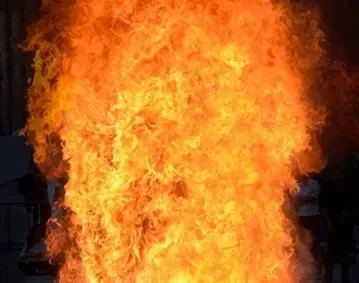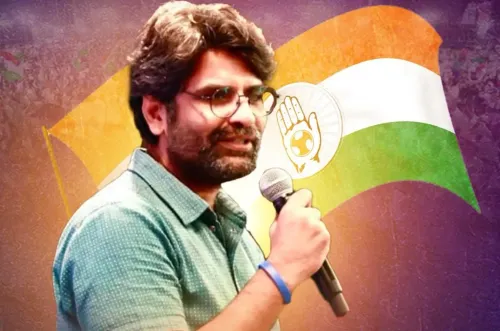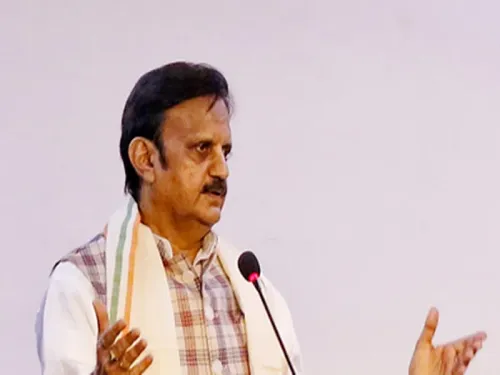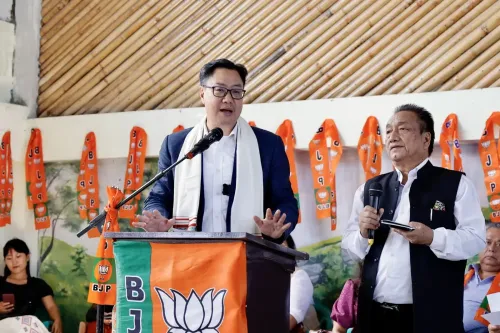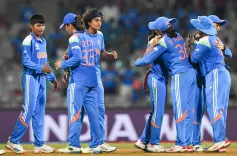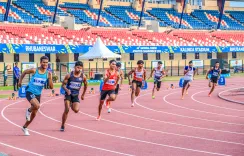How is Bhai Dooj Celebrated in UP Jails?
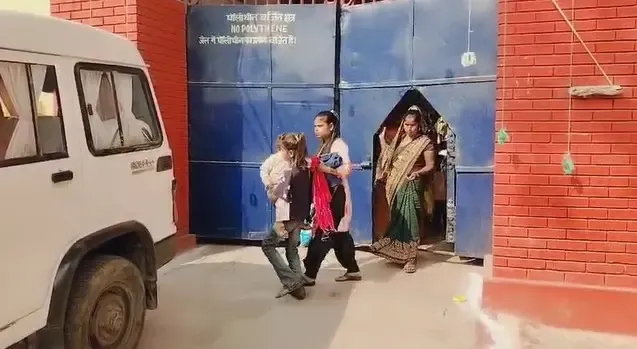
Synopsis
Key Takeaways
- Bhai Dooj symbolizes the bond between siblings.
- Celebrations in jails promote emotional connections.
- Rituals include applying tilak and performing aarti.
- Special arrangements are made for visitors in jails.
- Festivities reflect the resilience of family values.
New Delhi, Oct 23 (NationPress) The festival of Bhai Dooj, representing the everlasting bond between brothers and sisters, was observed with heartfelt emotion and enthusiasm throughout Uttar Pradesh on Thursday. This celebration extended beyond homes, reaching into the confines of jails in Shahjahanpur, Meerut, and Moradabad.
At Shahjahanpur District Jail, the day commenced with an uplifting scene: sisters forming long lines outside the gates from early morning, anticipating the opportunity to meet their imprisoned brothers. Upon entry, they engaged in sacred rituals that included applying a tilak on their brothers' foreheads, performing aarti, and offering sweets, all while praying for their well-being and longevity. The emotional reunion of siblings, divided by walls but united in love, brought tears to many.
Jail Superintendent Mijajilal stated that special measures were implemented to ensure that the sisters could visit their brothers with ease.
“Celebrations like Bhai Dooj help maintain human emotions and family values even within prison walls,” he remarked, noting that the festivity infused a sense of humanity into an otherwise strict environment. The jail grounds resonated with an atmosphere of love, warmth, and spiritual connection.
In Meerut, the Chaudhary Charan Singh District Jail also experienced lively celebrations. The administration erected tents, seating areas, and provided refreshments for the visiting sisters. Starting at 5 a.m., the jail was alive with activity as approximately 4,000 to 5,000 sisters arrived to participate in the traditional rituals. The Jail Superintendent revealed that for female inmates whose brothers could not visit, the staff celebrated with them, ensuring that everyone felt included on this special day.
In Moradabad, the jail administration took additional measures, organizing the Bhai Dooj gatherings under heightened security.
Jailer Alok Singh mentioned that a slip system was initiated from 9 a.m. to effectively manage the large turnout. By 1 p.m., over 700 sisters had already met their brothers and participated in the tilak ceremony, with festivities continuing into the evening. As a gesture of affection, the jail administration also gifted each visiting sister Rori rice, a traditional festive offering.
In Kolkata, the festival was observed as Bhai Phota, where sisters applied a mark of the moon on their brothers' foreheads, performed aarti, and prayed for their long lives. Sweet shops, particularly Maa Kali Sweets in Naktala, experienced a surge in customers as families bought treats to share with their siblings.
A local resident remarked to IANS, “Today is Bhai Phota. We’ve come to buy sweets for our brothers. Later, our sister will visit to give us Phota too.”
Bhai Dooj is among the most significant Hindu festivals, celebrating the unique bond that exists between brothers and sisters. This day is also known by various names such as Bhau Beej, Bhatra Dwitiya, Bhai Dwitiya, and Bhathru Dwithiya. The primary objective of this celebration is to honor the connection between brothers and sisters, marking the conclusion of the Diwali festival.

